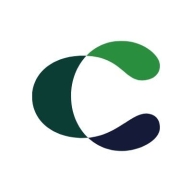

Fortify on Demand and Contrast Security Assess are key contenders in the application security tools category. Based on user reviews, Contrast Security Assess has the upper hand due to its innovative features, despite its higher cost.
Features: Fortify on Demand is known for extensive security testing capabilities, ease of integration, and reliable customer support. Contrast Security Assess is recognized for real-time vulnerability detection, intuitive functionality, and an advanced feature set catering to dynamic security needs.
Room for Improvement: Fortify on Demand could benefit from faster processing speed, more frequent updates, and enhancements in user interface design. Contrast Security Assess users request improved documentation, better reporting capabilities, and enhancements in user training resources.
Ease of Deployment and Customer Service: Fortify on Demand offers straightforward deployment and a supportive service team, praised for reliability and accessibility. Contrast Security Assess provides easy deployment and receives frequent praise for proactive and responsive customer support.
Pricing and ROI: Fortify on Demand offers a competitive pricing structure, providing satisfactory ROI with low initial setup costs. Contrast Security Assess involves higher initial expenses, though it justifies this with advanced capabilities and enhanced long-term ROI. Pricing information suggests Fortify is favorable for budget-conscious businesses, while Contrast is suitable for those seeking feature-rich solutions.


Contrast Security is the world’s leading provider of security technology that enables software applications to protect themselves against cyberattacks, heralding the new era of self-protecting software. Contrast's patented deep security instrumentation is the breakthrough technology that enables highly accurate assessment and always-on protection of an entire application portfolio, without disruptive scanning or expensive security experts. Only Contrast has sensors that work actively inside applications to uncover vulnerabilities, prevent data breaches, and secure the entire enterprise from development, to operations, to production.
Fortify on Demand is a web application security testing tool that enables continuous monitoring. The solution is designed to help you with security testing, vulnerability management and tailored expertise, and is able to provide the support needed to easily create, supplement, and expand a software security assurance program without the need for additional infrastructure or resources.
Fortify on Demand Features
Fortify on Demand has many valuable key features. Some of the most useful ones include:
Fortify on Demand Benefits
There are several benefits to implementing Fortify on Demand. Some of the biggest advantages the solution offers include:
Reviews from Real Users
Below are some reviews and helpful feedback written by PeerSpot users currently using the Fortify on Demand solution.
Dionisio V., Senior System Analyst at Azurian, says, "One of the top features is the source code review for vulnerabilities. When we look at source code, it's hard to see where areas may be weak in terms of security, and Fortify on Demand's source code review helps with that." He goes on to add, “Another reason I like Fortify on Demand is because our code often includes open source libraries, and it's important to know when the library is outdated or if it has any known vulnerabilities in it. This information is important to us when we're developing our solutions and Fortify on Demand informs us when it detects any vulnerable open source libraries.”
A Security Systems Analyst at a retailer mentions, “Being able to reduce risk overall is a very valuable feature for us.”
Jayashree A., Executive Manager at PepsiCo, comments, “Once we have our project created with our application pipeline connected to the test scanning, it only takes two minutes. The report explaining what needs to be modified related to security and vulnerabilities in our code is very helpful. We are able to do static and dynamic code scanning. When we are exploring some of the endpoints this solution identifies many loopholes that hackers could utilize for an attack. This has been very helpful and surprising how many vulnerabilities there can be.”
A Principal Solutions Architect at a security firm explains, “Its ability to perform different types of scans, keep everything in one place, and track the triage process in Fortify SSC stands out.”
PeerSpot user Mamta J., Co-Founder at TechScalable, states, "Almost all the features are good. This solution has simplified designing and architecting for our solutions. We were early adopters of microservices. Their documentation is good. You don't need to put in much effort in setting it up and learning stuff from scratch and start using it. The learning curve is not too much."
We monitor all Application Security Tools reviews to prevent fraudulent reviews and keep review quality high. We do not post reviews by company employees or direct competitors. We validate each review for authenticity via cross-reference with LinkedIn, and personal follow-up with the reviewer when necessary.